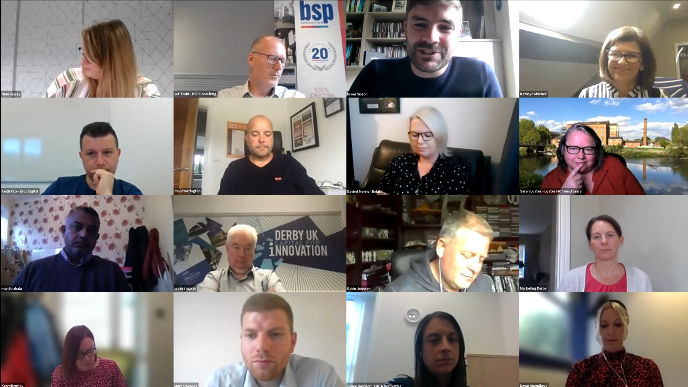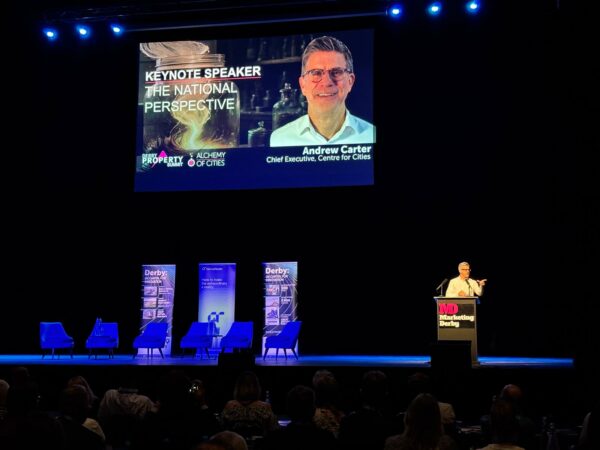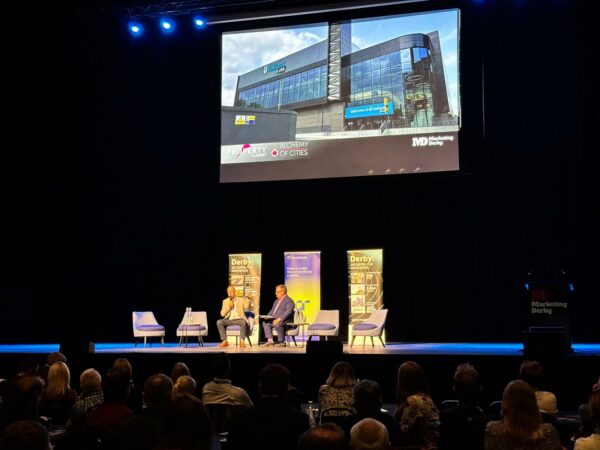Latest News | 8 July 2021
Talking Business Live: Embracing the skills revolution

Experts in the education and training sector have urged businesses to embrace the skills revolution to ensure they have a workforce fit for the future.
Even before the pandemic, there was talk of the need for a greater emphasis on skills – but now, skills are being seen as central to the recovery.
At the latest Marketing Derby Talking Business Live session, hosted by managing director John Forkin, a panel of experts discussed both the challenges and opportunities for employers looking to upskill their workforce.
The session began with a presentation from Kerry Bentley, managing director of DBC Training, which works with Orbital Recruitment.
She said there was a “massive need” for skills in the current employment market, particularly as furloughed staff start to return to work.
She also shared details of two free training programmes, which could help upskill employees.
She said: “The iProgramme is a fully-funded programme for firms in Derbyshire and Nottinghamshire who want to improve the digital skills of staff – with more people working from home, digital skills are a must.
“A more specialist programme is Taste Local. There is a huge need for skills in the food and drink manufacturing sector – and this could suit those who may have lost their jobs in the hospitality sector and need to re-skill.”
Carol Dixon, director of commercial business at Derby College Group, talked about how the college works closely with businesses to design a curriculum that meets the needs of employers – and shared details of the new T-Level qualifications it has started offering.
She said: “T-Levels are seen as the gold standard as they are designed to prepare students for the world of work. 80% is classroom-based, while 20% is on the job experience.
“We have seen a huge uptake for T-Levels, with over 300 applicants.
“They are designed to fill the need for certain skills and should give our students the edge when applying for a job.”
Nikki Kinsey, group director at Sellick Partnership, which specialises in professional services recruitment, gave an overview of the employment market – and revealed a shift in the balance of power between employer and potential employee.
She said: “The market at the moment is extremely candidate led, which has resulted in a skills shortage. Talent has the upper hand, which is presenting a challenge for employers.
“Employers need to review their people plan, their brand and their recruitment processes in order to secure the best talent.”
Professor Kathryn Mitchell, vice-chancellor at the University of Derby, shared details of its recent bid to create an East Midlands Institute of Technology (IoT), in partnership with Derby College Group, together with Loughborough College and Loughborough University.
She explained how the IoT would be designed to produce the highly advanced workforce needed to lead the digital revolution – and had the backing of firms including Rolls-Royce, Toyota, Alstom and Bloc Digital.
Kathryn said: “The partnership is really powerful. I believe we have submitted a really stunning bid.”
Bromley Sibson, managing director at Mitre Group, which is a training and apprenticeship provider, with a specialism in spectator safety, said it was important for employers not to misinterpret what the skills revolution means.
He said: “The skills revolution means something different to different sectors. What we must remember is behind the technology are humans. We must not forget the human element. Community is essential – and we must keep in mind the variation in people’s wants and needs.”
Finally, Jef Todd, business development director at BSP Consulting, a civil and structural engineering firm, spoke about the challenges of persuading young people to consider construction as a career.
He said: “We don’t see a skills gap because we can teach people things. The problem is getting young people to consider construction as a career. For some reason, it is not considered sexy anymore.
“The reality is that construction offers highly skilled and highly paid jobs. So, how to we create that sexiness? Are schools promoting the industry to them properly? The challenge is how we get young people engaged.”
To view the full discussion please click here.


